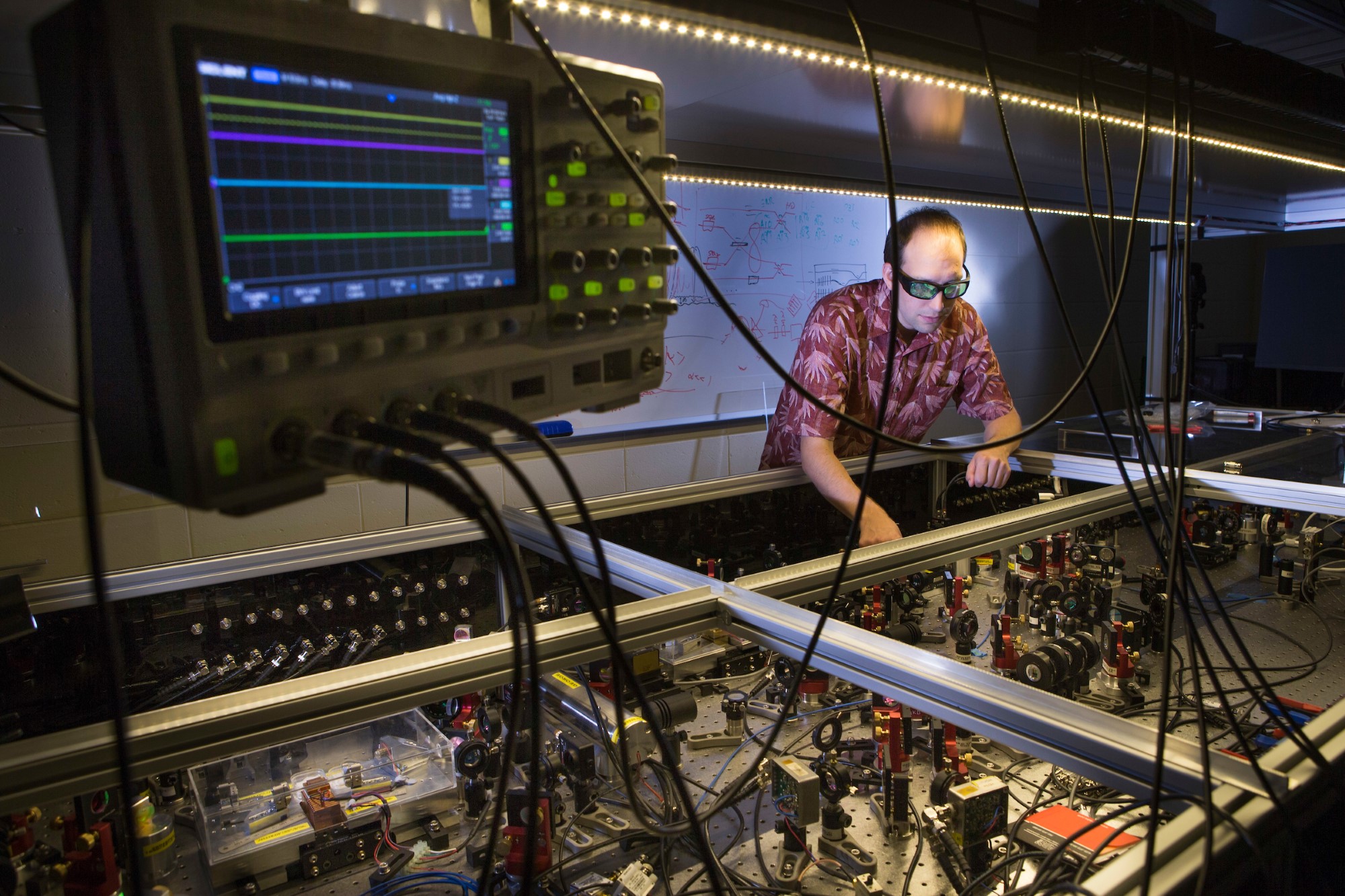
Research projects
Discover the forefront of astronomy and astrophysics through our projects, ranging from deep-space communication systems to groundbreaking adaptive optics. Explore our diverse, ongoing research initiatives shaping the future of space science.
Displaying 31 - 45 of 171 project(s).
Ambitious students will investigate optimal ways to measure the stellar properties (eg Teff, age, mass) and chemical composition of this immense amount of data.
Theme
- Galactic archaeology
- Stellar and planetary astronomy
In this project you will use existing and new data to understand the nature of filamentary structure in galaxies and how they relate to magnetic fields.
Theme
- Galactic archaeology
- Structure and evolution of the Cosmos
Student intake
Open for Bachelor, Honours, PhD students
People
- Professor Naomi McClure-Griffiths, Supervisor
This project aims to determine what source is dominating in massive galaxies 4 Gyrs ago using MAGPI (MUSE), EMU (ASKAP) surveys and eROSITA public data.
Theme
- Structure and evolution of the Cosmos
Student intake
Open for Honours students
Observatory
People
- Associate Professor Emily Wisnioski, Supervisor
- Dr Andrew Battisti, Supervisor
This project aims to determine what source is dominating in massive galaxies 4 Gyrs ago using MAGPI (MUSE), EMU (ASKAP) surveys and eROSITA public data.
Theme
- Structure and evolution of the Cosmos
Student intake
Open for Honours students
Observatory
People
- Associate Professor Emily Wisnioski, Supervisor
- Dr Andrew Battisti, Supervisor
Measuring asteroid properties with the Kepler Space Telescope to find Future Asteroid Mining Targets
Theme
- Stellar and planetary astronomy
Student intake
Open for Bachelor, Honours, PhD students
Observatory
People
- Associate Professor Bradley Tucker, Supervisor
The Australian Plasma Thruster (APT) will help deep-space probes travel for longer and further into space and be used to de-orbit satellites at the end of their lifetimes. The engine of the thruster will be based on ANU Professor Christine Charles's Helicon Double Layer Thruster (HDLT), which is the first of its kind in the world.
Theme
- Instrumentation
This project aims to measure both distances and velocities for 100,000 galaxies and so map the visible and dark matter within a billion light-years.
Theme
- Structure and evolution of the Cosmos
This project aims to measure both distances and velocities for 100,000 galaxies and so map the visible and dark matter within a billion light-years.
Theme
- Structure and evolution of the Cosmos
The Gaia mission has revolutionised our understanding of the Milky Way halo, but the biggest discoveries, which rely on individual abundances, are yet to be made.
Student intake
Open for PhD students
Observatory
People
- Dr Claudia Reyes, Supervisor
- Professor Melissa Ness, Supervisor
The Gaia mission has revolutionised our understanding of the Milky Way halo, but the biggest discoveries, which rely on individual abundances, are yet to be made.
Student intake
Open for PhD students
Observatory
People
- Dr Claudia Reyes, Supervisor
- Professor Melissa Ness, Supervisor
In the spectra of distant stars, we can often find a series of absorption features, such as Diffuse Interstellar Bands (DIBs) or those of neutral atomic potassium, K I. Although the exact carriers of DIBs are still a matter of debate, various candidates have been proposed over the years.
Theme
- Galactic archaeology
The successful applicant will join the ANU team and will participate in the design and testing of the Adaptive Optics Tracking and Pushing (AOTP) system.
Theme
- Instrumentation
Study of the statistics of turbulent, magnetised gases, relevant for the structure and evolution of the interstellar medium, the formation and evolution of stars and galaxies, using a combination of supercomputer simulations, theory, analytical calculations, and comparison to observations.
Theme
- Stellar and planetary astronomy
- Structure and evolution of the Cosmos
Student intake
Open for Bachelor, Honours, PhD students
Observatory
People
- Professor Christoph Federrath, Supervisor
The kinematics and morphology of typically massive disk galaxies has changed dramatically over the last ~9 Gyrs.
Theme
- Structure and evolution of the Cosmos
Student intake
Open for Honours, PhD students
Observatory
People
- Associate Professor Emily Wisnioski, Supervisor
The goal of this project is to make predictions for the observable gamma-ray signatures of different plasma physics models for cosmic ray transport.
Theme
- Stellar and planetary astronomy
- Structure and evolution of the Cosmos
